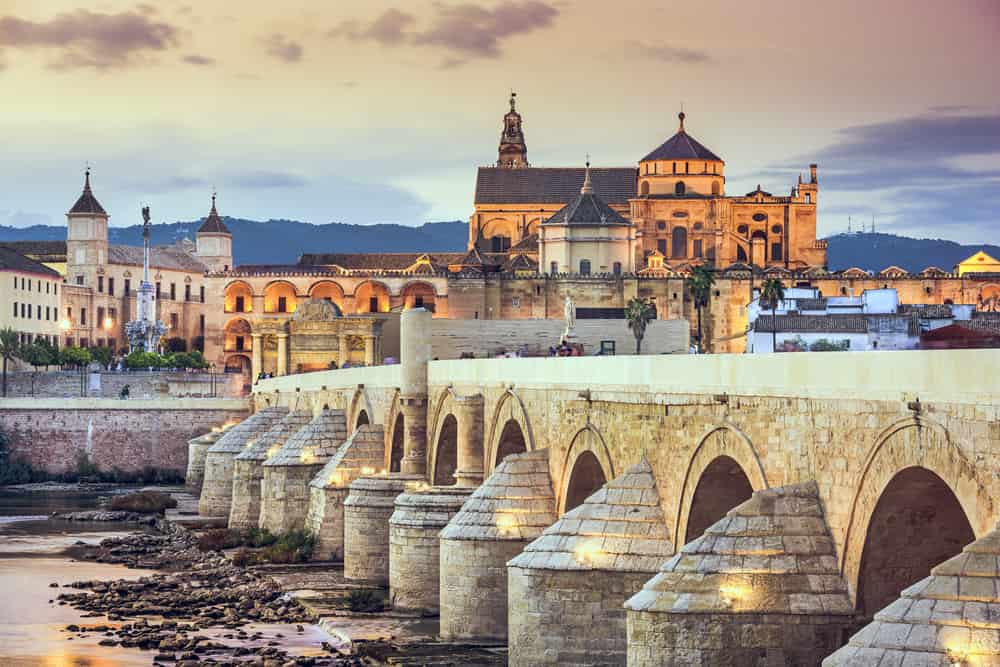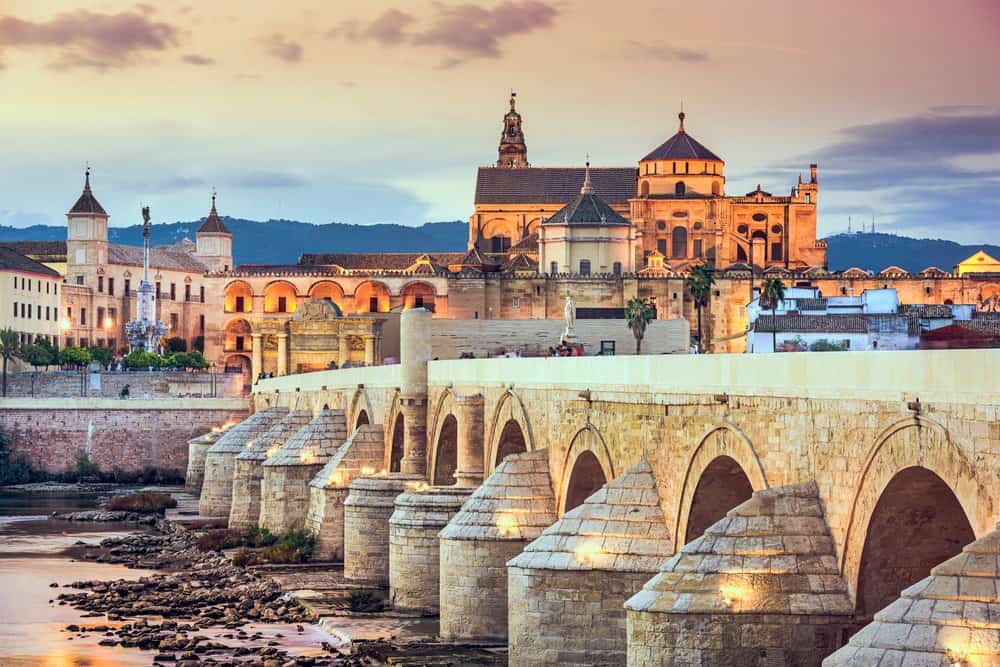Surveying the royal gardens, neighbourhoods, architecture, cultural and religious highpoints of the great cities of European history are seldom an easy and inexpensive task. But visiting Cordoba – once the largest and most prosperous of all cities in Europe and seat of Arab power on the continent – can effortlessly be explored without the need for a metro system or complicated network of buses.
Now little more than a provincial gem, the old city’s rustic streets bring to life the colourful and eclectic history of Spain’s romantic Andalucía region. In addition to an obligatory walk along the Guadalquivir River, here are some tips on how to see the best of Cordoba.
What to see when visiting Cordoba
Only a 40-minute train trip away, Cordoba is a great day trip from Seville. Alternatively, book a night or two’s accommodation to full explore the city.
Regardless of how long you spend visiting Cordoba, her are a few things to do:
Mosque-Cathedral of Cordoba
The undoubted jewel in the ancient city’s crown is the Mosque-Cathedral of Cordoba. Built on as a basilica by the Visigoths, the site became a massive mosque under its Arab rulers before being transformed into a unique Catholic cathedral, encompassing its 1000-year-old Islamic architecture. A tour is well worth the 15€ entry fee. Otherwise a wander around The Orange Tree Courtyard (free) is a great way to get a flavour of the compound’s majesty.
Get your skip the line tickets here.

Alcazar (castle) of the Christian Monarchs
The imposing Alcazar (castle) of the Christian Monarchs is another structure which bolsters Cordoba’s credentials as a European historic centre. Not as dull as it sounds, the towers once occupied by a succession of royal courts have witnessed some of Spain’s most important historic events.
Now featuring a museum comprising artworks and artefacts from its time as a royal court, the sense of history is complemented by the beautifully manicured gardens and network of sophisticated water features which surround the fortress. Entrance is free on Wednesday mornings.
Get your guided tour and skip the line tickets here.

The Jewish Quarter
The cobblestone streets of the city’s old Jewish Quarter is full of life, atmosphere and a myriad of shops, bars and restaurants. One of the last surviving (although unused) synagogues in Spain can be found in one of the back streets and is worth a look.
The Arab baths
During its time as massive Arab city, public baths were popular among the region’s rulers, visitors and general population alike. The baths which were the centre of Arab social life during the 11th and 13th centuries were uncovered in the 1960s and have been transformed into a museum detailing the importance of the baths to the society.
If you want to see what all the fuss is about Arabs baths, there are two hammams in town which provide the full Arab bath experience from €50. You can book an experience Cordoba’s Hammam Al Ándalus here.
What to eat and drink in Cordoba
Glorious examples of the region’s world-famous culinary delights – including tapas and paella – are all found a short walk from its historical centre. For beautifully fresh, homemade (and cheap) tapas or more substantial meals, try the bodegas on (and in the streets branching off) the orange tree-lined Calle San Fernando. Terrace restaurants on the relaxing Calle Romero Torres also serve reasonably priced tapas and drinks.
While sangria is a popular beverage satisfying the palates of countless tourists, a fruity cup of vermouth (vermut rojo) is more popular among locals with several bars offering their own homemade drop. El Baron in the central Plaza Abades and a collection of small bars near the more cosmopolitan Plaza Tendillas serve locally made vermouths for less than 4€ a cup. For a sunset drink with some atmosphere, be sure to try a drink and tapas at the picturesque Plaza de la Corredera.


